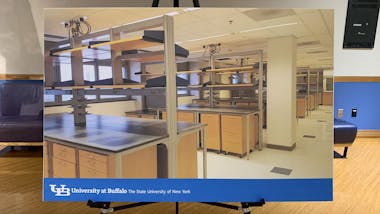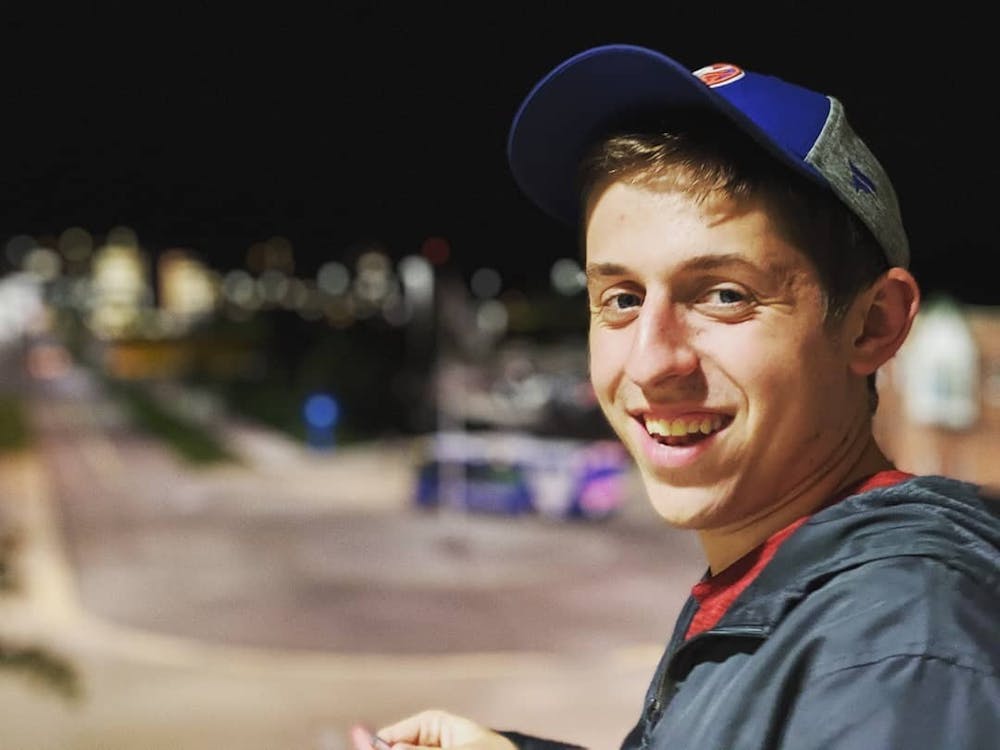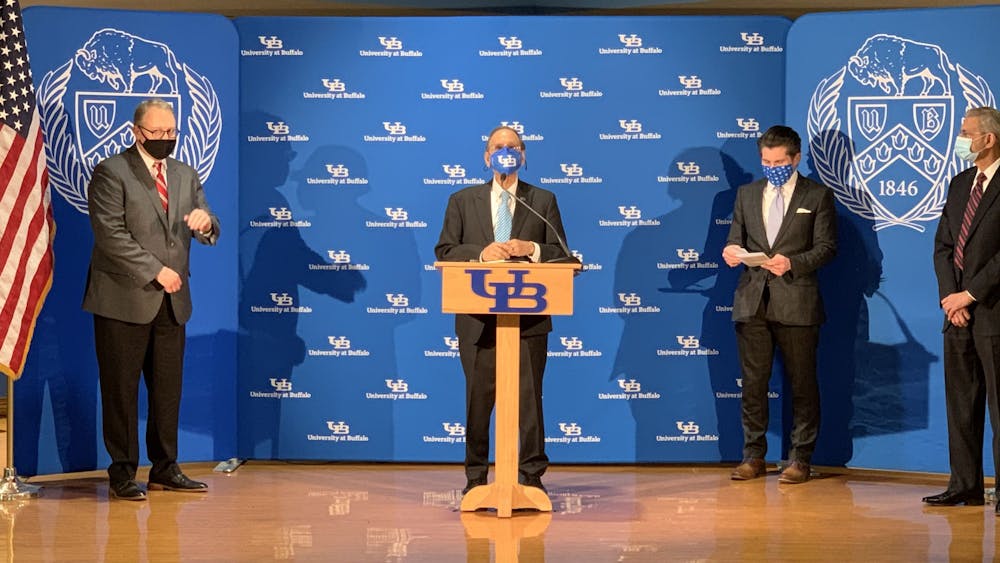SUNY Chancellor Jim Malatras announced in a Sunday press conference that SUNY Upstate Medical Center will create a COVID-19 satellite testing lab inside UB’s Farber Hall.
The lab will enable SUNY to process roughly 350,000 COVID-19 tests per week, up from the current 200,000 tests, Malatras said. The chancellor noted this will allow schools like UB to test students weekly with a quick turnaround time in processing the results.
The facility will cost approximately $500,000 to operate, factoring in expenses for equipment and lab technicians, SUNY Upstate Medical University President Mantosh Dewan said. SUNY will invest $120,000 in the expansion, which will be used to purchase equipment. Additional funding will come from Quadrant Biosciences, Upstate Medical’s partner in developing the Clarifi COVID-19 test used throughout the SUNY system.
The lab will be housed in Farber Hall, a South Campus building left with vacant laboratories following the medical school’s 2018 move to the downtown Buffalo Niagara Medical Campus. The facility will be staffed by Quadrant Biosciences and SUNY faculty and student medical researcher teams.

Dewan, whose campus has worked with Quadrant to produce a saliva-based test for the entire SUNY system, said the funding “will allow us to be up-and-running in March,” although a more precise time-frame is unclear. The new facility will serve as a processing location for Western New York SUNY schools and could expand to the broader community at a later time, Malatras said.
Malatras acknowledged the costs of such an endeavor, but argued they are justified due to the public health need.
“There’s a cost of keeping communities safe,” Malatras said. “Thankfully, we’ve received some federal stimulus money that could help offset some of these costs [COVID-19 testing and the new processing locations], but this is an important cost for our campuses since it’s about our health and safety.”
Malatras also noted that the Clarifi test can detect the presence of the virus in people who are asymptomatic, which he argues is crucial for a successful spring reopening. The test also has a one-to-two day turnaround time, which is above-average nationally.
“It is more accurate than most tests,” Malatras said, in a nod to Clarifi’s top rating in the FDA’s SARS-CoV-2 reference panel, which allows for a precise comparison of the 195 tests the agency has authorized since the pandemic began. “It is the number one saliva test in the world. If you take all the tests, it’s the number six test in the world. We’re 99.9% confident in the results.”
Malatras also acknowledged that universities are in a unique situation, especially compared to last semester. In the fall, surrounding communities had lower rates of transmission and campuses were points of concern. In the spring, surrounding communities have high rates of transmission and the SUNY-wide infection rate is much lower, at .40% over the previous 14 days.
But he also emphasized that it would take strong policies to keep things this way. The state is currently mandating that all students wear masks, social distance and receive weekly PCR tests.
“You have a compliance doctrine, where people call me ‘Chancellor No-Fun,’” Malatras said. “I love a party like everyone else does, but now is not the time for partying on our campuses or off our campuses. Are we worried about COVID-19? Absolutely. Are we taking every precaution? Absolutely.”
Malatras said UB’s campus reopening was a joint effort between his office and UB President Satish Tripathi’s office.
“This was a collaborative effort,” Malatras said. “We talked to faculty, students, public health officials. President Dewan put together a group of public health officials all across the system to help inform us. It's [a] tough policy, it’s probably the most comprehensive policy in the country, but then each campus is different and they tailor it to their needs.”
Justin Weiss is the managing editor and can be reached at justin.weiss@ubspectrum.com

Justin Weiss is The Spectrum's managing editor. In his free time, he can be found hiking, playing baseball or throwing things at his TV when his sports teams aren't winning. His words have appeared in Elite Sports New York and the Long Island Herald. He can be found on Twitter @Jwmlb1.





